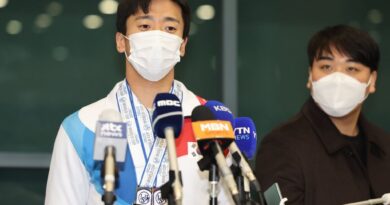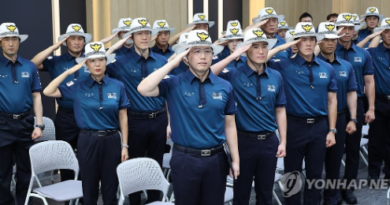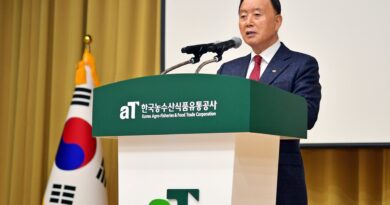Ministry of Agriculture, Food and Rural Affairs pledges to create tangible results for the people by strengthening collaboration with the Rural Development Administration, Korea Forest Service, etc.

(Source: Yonhap News)
At 9:30 a.m. on November 15, Minister of Agriculture, Food and Rural Affairs Song Mee-ryeong invited heads of 14 agricultural and food-related organizations, including Rural Development Administration (RDA) Administrator Kwon Jae-han and Korea Forest Service Administrator Lim Sang-seop, to a meeting to strengthen cooperation and communication.
The heads of institutions in attendance that day reviewed the major policies that have been promoted so far in line with the government’s turning point, shared the achievements of each institution, and discussed tasks* on which cooperation should be prioritized in the future.
*Key cooperation tasks: Smart agriculture R&D and field expansion, expansion of support for agricultural disasters such as diseases, pests, and disasters, establishment of an agricultural product supply and demand management system in response to climate change, advancement of scientific prediction and observation using agricultural satellites, etc.
At the meeting, Minister Song Mei-ling emphasized that the Ministry of Agriculture, Food and Rural Affairs and related organizations must innovate the way they work to foster agriculture as a future growth industry and make rural areas a space of opportunity open to all citizens.
First, he emphasized the need to break away from existing work practices, eliminate barriers between organizations, and create synergy through active collaboration. In particular, he urged the creation of collaboration models in various fields, such as launching agricultural satellites, establishing a climate change response system, and stabilizing supply and demand for agricultural products, in cooperation with the Rural Development Administration and the Korea Forest Service.
Second, he emphasized that we should look at policies from the perspective of the people, rather than from the perspective of the policy supplier, and create results that the people can feel. To this end, there was a consensus that civil servants and public institution workers should create policies that reflect the people’s demands, listen more actively to the voices of the field, and carefully examine the people’s difficulties.
Third, he urged that tasks that need to be completed this year be completed by the end of the year, and that issues raised in the National Assembly or on-site be carefully managed so that they can be resolved under the responsibility of each organization head.
Minister Song Mei-ling asked heads of organizations to pay special attention to ensuring that public service discipline is not disrupted as the end of the year approaches, and emphasized that “in the latter half of the government, rather than short-term, makeshift problem-solving, we will focus on promoting policies to reform the agricultural and rural structures for future generations, and I ask that each organization actively participate in this.”
Editor. Hong Se-yeong
Subscribe to our newsletter!







